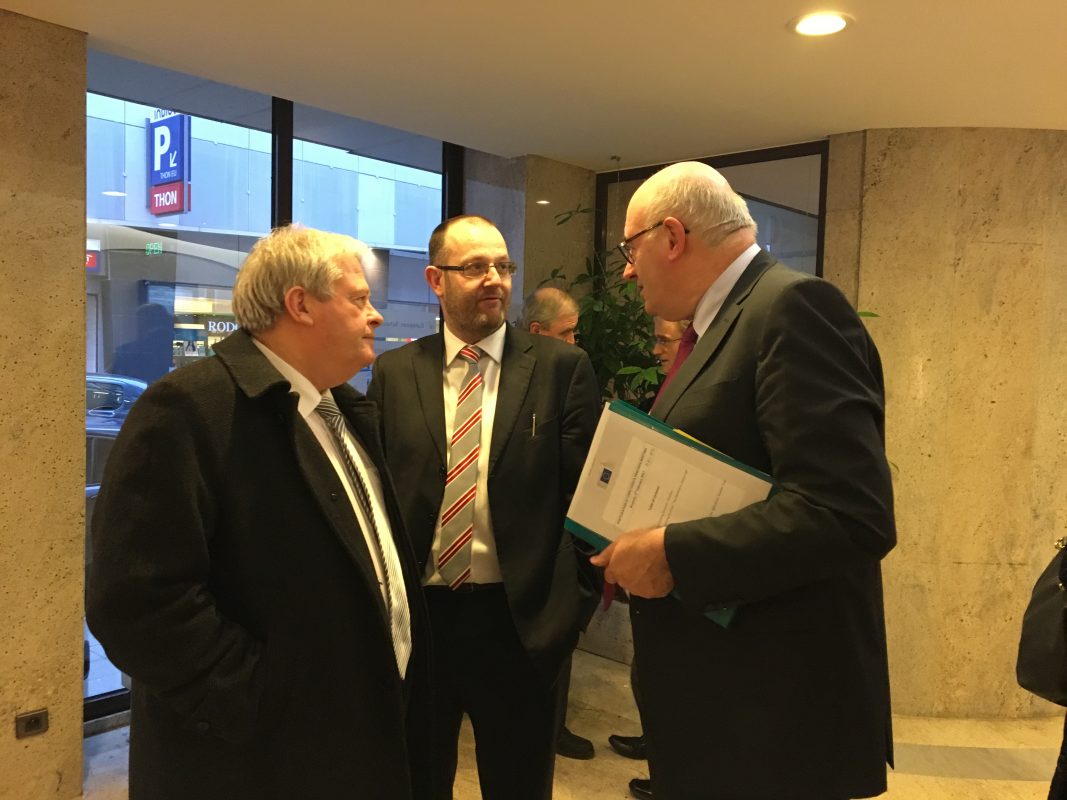ICOS Meet Commission’s Brexit Negotiating Team

On 9th February, ICOS President Martin Keane, CEO TJ Flanagan and European Affairs Executive Alison Graham, met with members of the Commission’s Brexit negotiating team, including those responsible for agricultural and Irish affairs within the upcoming talks.
ICOS raised the issue that as key forces within the Irish agri-food industry, Brexit poses a huge number of challenges for Irish co-operatives, due to strong trade links with the UK and business structures which span north and south of Ireland. We outlined that our priority within the negotiations is to ensure that these deep trading ties and the integrated all-island agricultural economy are recognised and facilitated in the outcome of the discussions.
ICOS called for the upcoming negotiations to secure a clear framework to allow future market access terms that are as close as possible to the status quo, to avoid the disruption of trade – including full recognition of food safety systems and veterinary certifications as equivalent and maintaining duty free access.
We shared the view that practical solutions are needed to avoid the introduction of a physical border between the north and south of Ireland. We emphasised that a new customs agreement with the UK must allow for the continuation of the current north-south trade and coordination on issues such as animal health strategies, food chain traceability, etc. It was highlighted that without this trade, there would be inestimable damage done to the fragile rural economies in the border counties of Ireland.
One of the solutions ICOS purposed, was for the recognition of “Irish Milk” as coming from the island of Ireland, which would allow for the continued trade of milk across the border.
ICOS also spoke about these challenges with colleagues from other co-operative organisations across Europe, within the Cogeca Praesidium meeting on the same day. There was full recognition of the gravity of this challenge for all EU countries in terms of trade, CAP and other EU policies, such as climate emissions commitments and fisheries, as well as expressions of solidarity for the particular difficulties it would bring for the Irish co-operatives.
By Alison Graham
European Affairs Executive